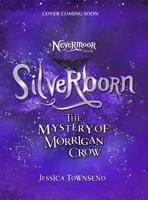Publisher's Synopsis
Please note that the content of this book primarily consists of articles available from Wikipedia or other free sources online. Pages: 27. Chapters: Henry the Fowler, Lothair III, Holy Roman Emperor, Henry the Lion, Albert the Bear, Widukind, George, Duke of Saxony, Albert III, Duke of Saxony, Henry X, Duke of Bavaria, Otto I, Holy Roman Emperor, Bernhard, Count of Anhalt, Albert II, Duke of Saxony, Albert I, Duke of Saxony, Frederick I, Elector of Saxony, Henry IV, Duke of Saxony, John I, Duke of Saxony, Bernard II, Duke of Saxe-Lauenburg, Berthoald, Duke of Saxony, Magnus, Duke of Saxony, Bernard II, Duke of Saxony, Hermann Billung, Otto I, Duke of Saxony, Bruno, Duke of Saxony, Liudolf, Duke of Saxony, Bernard I, Duke of Saxony, Otto, Count of Ballenstedt, John Ernest, Duke of Saxe-Coburg, Ordulf, Duke of Saxony, Theoderic, Duke of Saxony. Excerpt: Otto I the Great (23 November 912 in Wallhausen - 7 May 973 in Memleben), son of Henry I the Fowler and Matilda of Ringelheim, was Duke of Saxony, King of Germany, King of Italy, and "the first of the Germans to be called the emperor of Italy" according to Arnulf of Milan. While Charlemagne had been crowned Emperor in 800, his empire had been divided amongst his grandsons, and following the assassination of Berengar of Friuli in 924, the Imperial title had lain vacant for nearly forty years. On 2 February 962, Otto was crowned Emperor of what would later become the Holy Roman Empire. Married to Eadgyth of England in 929, Otto succeeded his father as king of Germany (officially still known as East Francia) in 936. He arranged for his coronation to be held in Charlemagne's former capital, Aachen, where he was anointed by Hildebert archbishop of Mainz, primate of the German church. According to the Saxon historian Widukind of Corvey, at his coronation banquet he had the four other dukes of the empire, those of Franconia, Swabia, Bavaria and Lorraine, act as his personal attendants: Arnulf I of Bavaria as marshal (or...






















